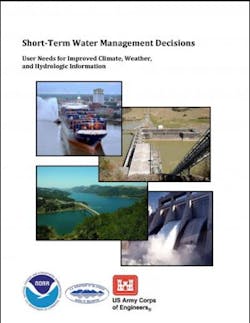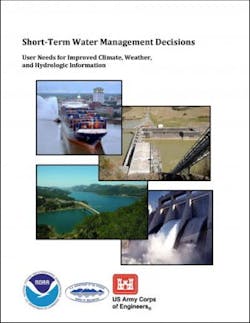Report identifies short-term needs for making better water management decisions
WASHINGTON, DC, Jan. 11, 2013 -- Adapting to future climate change impacts requires capabilities in hydroclimate monitoring, short-term prediction and application of such information to support contemporary water management decisions. These needs were identified in a report, "Short-Term Water Management Decisions: User Needs for Improved Climate, Weather, and Hydrologic Information," published by the Bureau of Reclamation and the U.S. Army Corps of Engineers with the National Oceanic and Atmospheric Administration.
"Climate change is adding to the challenges we face in managing a multitude of issues, including water supply, water quality, flood risk, wastewater, aquatic ecosystems, and energy production," Reclamation Commissioner Michael L. Connor said. "Meeting these challenges requires close collaboration among water resource management agencies, operational information service providers, stakeholders and the scientific community."
"This document describes the short-term needs of the water management community for monitoring and forecast information and tools to support operational decisions," said U.S. Army Corps of Engineers Director of Civil Works Steven L. Stockton. "Large water resources systems with water supply goals have very different needs from smaller systems that primarily service flood control purposes. Because of those differences, having a unified report such as this one communicates not only the national-level water resource needs but the local interactions between the water resource management agencies and the weather, climate and hydrologic service and information providers."
Technical specialists from the Corps of Engineers and the Bureau of Reclamation with NOAA's National Weather Service prepared the report as part of the Climate Change and Water Working Group. It is the second in a series of reports from the working group.
The first report, "Addressing Climate Change in Long-Term Water Resources Planning and Management," was issued in January 2011.
###

